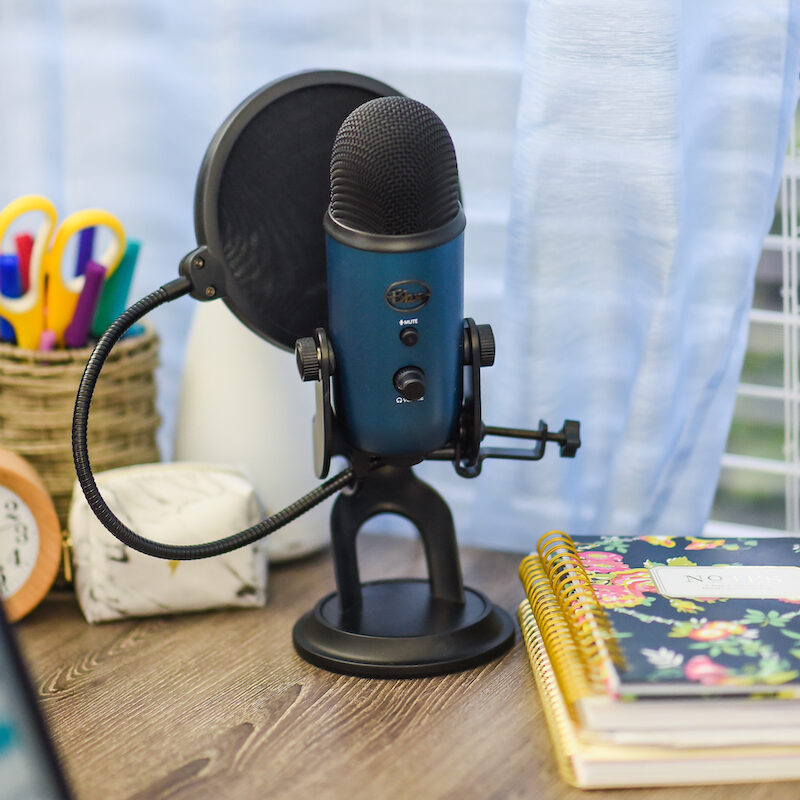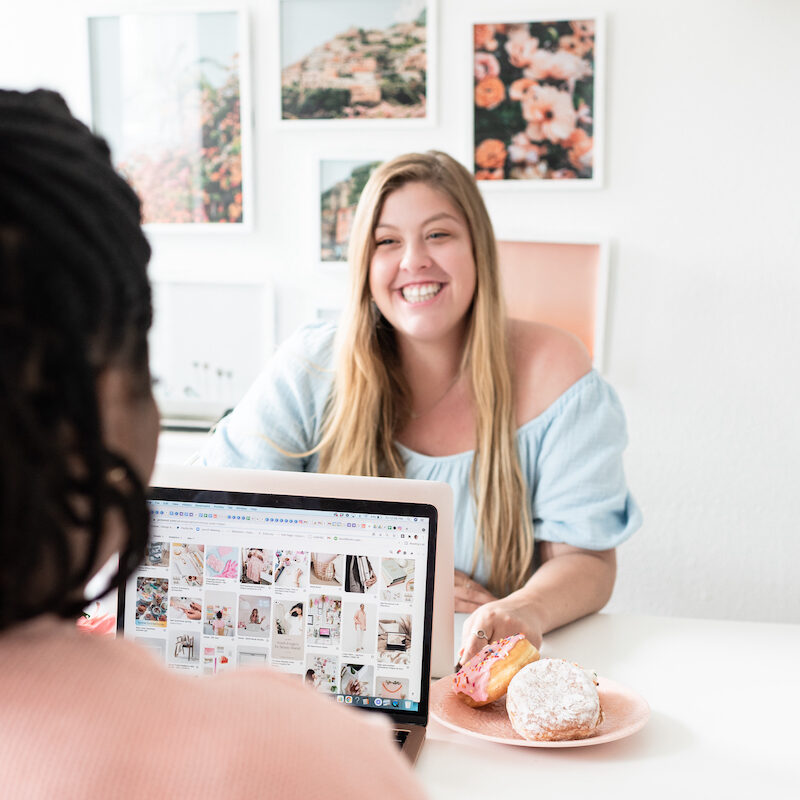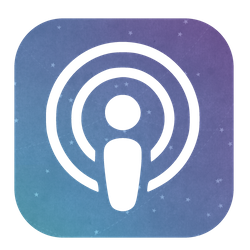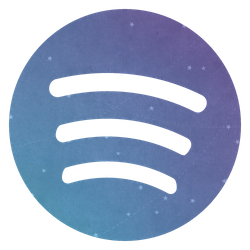episode 30
The POWER of the Proposal Follow-up
Reframe following up on proposals from being pushy and coercive to being available and helpful to your clients. Today Sam & Karyn discuss the power of following up on proposals and how to increase the likelihood of booking web design projects.
Episode 30: The POWER of the Proposal Follow-up
Show Notes:
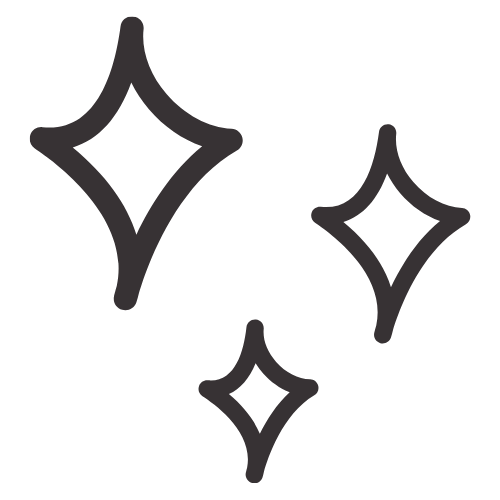

Disassociating following up from sleazy sales tactics to understand how with the right intentions, this follow-up is a vital step in closing the loop on a sale.


Episode Transcript:
Karyn Paige, Sam Munoz
Karyn Paige 00:00
First and foremost, following up on, essentially closing a sale, like following up on a sale is a best practice, like this is where we get into the idea that you are now selling a service that you have offered somebody and you need to close that sale, right? Like close the loop. And following up is a best practice in that loop in that process. And like what you were saying about maybe we had an experience where we felt like somebody was pushy and pressuring us and wouldn’t leave us alone. That is an abuse of the best practice. It’s not a best practice. It’s a worst practice. It’s about the tact of the approach. Right. So let’s disassociate the approach from the practice. And following up is not inherently bad or sleazy. It’s something that needs to happen.
Sam Munoz 00:57
Welcome to Making website magic where we empower women to step boldly into their web design businesses follow their intuition and claim the success they’re worthy of. I’m Sam Munoz.
Karyn Paige 01:08
And I’m Karen Page, where the Tech Wizards behind Sam Linnaeus consulting and the making website Magic School of Business. Were two women here to talk about what it actually takes to run a web design business that’s aligned with your vision.
Sam Munoz 01:20
Spoiler alert, it probably isn’t what you think it is ready to hear about everything from refining your business vision, networking with intention and creating a magical client experience.
Karyn Paige 01:30
Let’s do it. Hello, Karen. Hey, Sam. Are you as jazz as I am? I’m like, on fire with caffeine right now.
Sam Munoz 01:44
Yeah, I’m just I’ve been getting a ton of sleep lately. So I’m also like, just naturally caffeinated, I guess you could say, and I am like, pumped today? Well, first, for many reasons. A, this is a great Podcast, episode B. This is our last kind of new podcast episode of the year, you could say end of the season. Because next episode, we’re going to be reviewing some of our favorite episodes and some things that we’ve learned since creating all of those. So definitely, if you’re listening, and you know, you’re a big avid fan and listener of the podcast, don’t forget to listen to that one. But for today’s episode, I am so stoked to be talking about this.
Karyn Paige 02:22
Yeah. So the topic of this week’s episode is the power of the proposal follow up. So yeah, we are buzzing with anticipation. But before we get into the topic, can we talk about the special gift giveaway that we’re doing?
Sam Munoz 02:41
Yes. So if you love the podcast, and you have not left a review of it yet, we would super, super appreciate if you did that. We’re doing a fun end of the podcast season special thing. So if you leave a review of the podcast, go ahead and take a screenshot DM one of us. So at Hello, Sam Munoz are at Karen Page. I think Instagram is probably the best place for people to do that. And we will send you a special gift as a thank you for doing that. Obviously, if you listen to podcasts, you have probably heard this before. Leaving a review helps us reach more people like you who are also interested in learning about all things related to mindset and being a woman web designer and developer. So thank you, we appreciate it. And we can’t wait to see your review.
Karyn Paige 03:28
Yeah. Okay. So let’s get into this juicy, juicy topic right now, the power of the proposal follow up, right. So as always, we kind of want to OFF TOP talk about like, what what are we talking about? Why are we talking about this in particular, right? So what is a follow up?
Sam Munoz 03:47
Right? So in general, following up is checking back in reaching out after you’ve had a conversation or you’ve taken some action with someone going back and checking in. And that’s the best way that I can think about describing it. And follow ups can happen all over the place. Right? They can happen. After you’ve sent a proposal after a discovery call after a networking call after a lead was referred to you but they didn’t take action. They didn’t take that next step with you. And after making a discovery call or a networking call invitation when you said hey, let’s get on a call. And that person was really excited, but for whatever reason, they decided not to do it. So there are follow ups that can happen all over the place. And I genuinely think we can and should create an episode around each of those different types of follow ups and why they are so important. But today’s conversation is specifically around the proposal follow up.
Karyn Paige 04:40
Yes. Okay. So the proposal follow up is another component of like what we call the pre client journey, right? So we talked about the pre client journey and episode 29. And following up is a step in that journey and is a very important one.
Sam Munoz 04:58
Hugely important and it’s all So something I think we often, maybe for particular reasons that we will get into in this episode, but we might want to skip it. And I think that that does a huge disservice to your business. I have literally been talking about this exact same thing since 2018. When I’ve been talking about, you know, business tips and whatnot on my old morning Tech with Sam show. And it’s just like, Okay, this is the best way I can describe it. Let’s just go through a story breakdown. You spent all this time talking to someone having an amazing discovery call asking all the questions that you needed, they were gelling with you, you were gelling with them, you decided this is the perfect type of client for me. You crafted a beautiful proposal, right? You spent all this time putting in the investment details and crafting something super custom and unique for them. And just making it really beautiful and amazing. You also put in there, your availability, right? You said this is your start date, this is your end date, all that good stuff, and then you sent it, and you sent it and then you decided to never check back in. That is a huge disservice. Right?
Karyn Paige 06:04
Yeah, I’m just I’m feeling the weight of the like the absence of a thing. Like I’m feeling the weight of no closure.
Sam Munoz 06:13
That’s what it is. Yeah, yes. It’s like you’re moving right? You’re like on a you’re on a train and the train is moving, chugging along, and then all of a sudden, like, there’s no more track, and you’re just falling off the edge of a cliff. It’s just like weapon. Yeah. Okay. So
Karyn Paige 06:29
why do we do this, right? Like, why? Why would we not follow through? Let’s think of following up as following through on something.
Sam Munoz 06:40
Yes. Which like, let’s I’m not really a sports person. But like, we can throw out a tennis or a baseball analogy here. If you decide not to follow through with your swing, the ball doesn’t go anywhere. So it’s powerful, right, you got to follow all the way through and following up and following through. I love that correlation, because that’s what it is. It’s continuing the flow, continuing the process, not skipping the last step. But the reasons that we avoid it, I think can be complex and deep, right. And a lot of it has to do with like, mindset things that we have. I feel like the biggest one is that we just don’t want to hear no, right. We don’t want to get the No, maybe it stings. Maybe it doesn’t feel good. But I know we have an upcoming episode on the podcast about why Hearing no is actually so valuable and gives you so much insight for your business. And so hearing no and being afraid of hearing No, I get it and I hear you, but it can actually be so rich in information for you. But that’s I would say that’s the number one reason right. It’s like we don’t want to hear no, we don’t want to be what’s the word rejected? We don’t want to be rejected.
Karyn Paige 07:43
Yes. Okay. So the number one reason why we avoid follow ups is fear of rejection. The number two reason why we avoid follow ups is most likely we don’t want to seem pushy or obnoxious or salesy, right. We don’t want to be that person.
Sam Munoz 07:58
But we talked about that. Remember when we talked about the how MLMs have kind of poison the well? Yeah, and that episode, and that idea that like, coming back, and you know, following up doesn’t have to be pushy.
Karyn Paige 08:11
It doesn’t, it does. And in that same regard, it’s like, maybe we don’t want to seem like desperate or thirsty, or like we’re really chasing after something, right?
Sam Munoz 08:21
Yes. But also, I know that we’re going to be talking about the power of the follow up, but because my wheels are already turning right, what if instead of you seeming desperate, you like flipped the script and like centered your client in that. And I think it’s the same thing with being pushy, all of these things. It’s like, how is your you feeling that way and feeling fearful about that actually serving you in a positive way? I also think that like maybe we just don’t know, right? We don’t know. We don’t know what we should do. We don’t know how to follow up. And going back to that idea of being pushy. We might not know how to craft a follow up email or craft a follow up conversation that isn’t pushy, because maybe we’ve had experiences in our own life where people consistently followed up with us via email, let’s say, and it did feel pushy, and it did feel salesy, and we don’t want to be doing that. But then again, I want to ask you something. Did you say no? And then they continued, because that’s not what we’re talking about. We’re talking about following up until you get an answer.
Karyn Paige 09:15
Yes. So this is a huge distinction to make, like first and foremost, following up on essentially closing a sale, like following up on a sale is a best practice. Like this is where we get into the idea that you are now selling a service that you have offered somebody and you need to close that sale, right, like close the loop. And following up is a best practice in that loop in that process. And like what you were saying about maybe we had an experience where we felt like somebody was pushy and pressuring us and wouldn’t leave us alone. That is an abuse of the best practice. It’s not a best practice. It’s a worst practice. It’s about the tax. The approach, right, so let’s disassociate the approach from the practice. And following up is not inherently bad or sleazy. It’s something that needs to happen.
Sam Munoz 10:11
I love that it’s the way you do it. It’s the intentions behind the follow up that make the difference. And absolutely the way you frame the follow up conversation, keeping yourself in the driver’s seat, while also being respectful that there’s a person on the other side, which honestly, like, if you’re ready, I’m ready to just dive into like why the proposal follow up is so valuable and important. And I think that the biggest thing that kind of overarching over all of these benefits of following up is that you get confirmation one way or the other. So to the idea of like, why we avoid it, because we don’t want to hear the No, but that’s actually the power of it. Right? Is that we get a no, we get to know that that this one isn’t going to work out for us, or we get it Yes, right. But there is that closure. That is there is the closing of the loop, there is the buttoning it up there is closing the folder and saying this one was a no. And of course, like I said, the know is so insightful understanding why it was a no all of that. And we’ll get into that in another episode. But getting confirmation one way or the other huge
Karyn Paige 11:13
in to kind of paint that in another way. It’s like you don’t have any strings lingering around, you don’t have any, like just stuff that is just floating like I don’t know what happened to this one. So you get to move on, you get that confirmation for yourself. And then the prospective client gets to say, Okay, well, I said, No, we’re going to end the conversation, you put that button on it, right. But I think, again, like reframing that I don’t want to hear the know, how does the no benefit you right, like now you get to move on to the next prospect, send out their next proposal and do the whole journey over again.
Sam Munoz 11:49
Right. And I think that, you know, when we’re crafting these proposals and putting together availability, and you know, sending out investment Details section of the proposal, what we’re doing to is in our minds, we’re racking that up, right? We’re saying, well, I could potentially have $5,000 coming in my bank account in a couple months, I could be working on a project. So I’m not going to be available during January and February, right. So in our minds, we’re already starting to like pencil people in and you know, add them to our financial and revenue goals. And hearing that no, it’s actually helpful to say, okay, like, let’s just take the eraser and remove those things. But if we don’t ever get to know, we might actually just kind of still be in the back of our mind saying, Oh, maybe I’ll maybe I’ll have that project. And so it’s not actually good for the business in general to have these like lingering strings as well. Plus, I don’t know, do we talk about expiring your proposal, that might be a totally different episode. But you know, if you never close that loop, someone could always come back and say, Well, you know, we had this proposal sent out six months ago, you never followed up, but like, I’m ready to move forward like, whoa, buddy.
Karyn Paige 12:54
Yes, yes. Okay. So we didn’t explicitly talk about like having expiration dates on proposals. But that’s, that’s the other piece of it. It’s close, the loop is closed for you. And it also notifies your client that like, okay, let’s make a decision, because I don’t need you coming back to me six months from now, with a proposal, when I’ve already actually raised my rates, my calendar is full, I don’t have time for you like,
Sam Munoz 13:15
right, I’m so glad you brought that up, because that’s another piece of all of this. And the power of it is that it helps a prospect through the decision making process, right? It gives them clarity over, when do I need to make a decision? How do I make my decision? You know, because in that follow up email, ideally, you’re putting in there like the proposal expires on this date, I need your answer by this date to secure those dates, right. And so it’s helping them make a decision. And it also unlocks two way conversation, right? So I can think about that, for example, giving them access to ask questions. In your proposal, follow up email, you can say something like, I sent a proposal. Let me know if you have any questions as you’re making this decision.
Karyn Paige 13:56
Yes. Okay. So this, I want to call this section of the conversation now, like the client centered focus, right? Because here’s where we get into the power of the follow up really being a piece that centers the client, like, let’s put ourselves in their shoes, right? So you’re talking about helping a prospective client through like, like a buying decision, guiding them through that process that’s centering them, right. So again, let’s put ourselves in their shoes. You just sent them a proposal for a project, that’s four figures, five figures, and now they’re sitting thinking through this, is this something for me? They may have a follow up question. So as a gracious host, as a gracious manager and guide of this potential project, centering the client means asking them Hey, did you have any follow up questions? I sent you this proposal. It’s been you know, X amount of time. Is there anything that I can talk through with you? That is a very Client Center thing, right? And so again, it’s like putting yourselves in their shoes because they’re working through this process. Have? Do I want to say yes to this thing? Right. But the other piece of that, too is like that might require having a follow up conversation. Right? So you’re opening the door, to say, I’m happy to, to have another call with you. I’m happy to discuss this with you more,
Sam Munoz 15:18
another layer to that, and then asking questions and wanting to get on calls, right, those ideas, and you’ve said this before on the podcast, a client asking questions is not an interrogation, right? They’re not doing it to be mean, right. And I feel like when we get asked questions, often we take it as a reflection of like, oh, I shouldn’t have charged that much. Or I shouldn’t think that I know what I’m talking about with this. But really, they’re just doing their due diligence to decide if making this investment is worth it for them. And I think we have to normalize that idea. These are huge investments that we’re asking. And if they’re not huge, that’s okay. Right. But if you are listening to this podcast, and you’ve been listening to the last 30 episodes, and you realize, Wow, I’m probably under charging for my work, and you’re wanting to charge four figures or five figures for the services that you offer, we need to re evaluate how those types of clients make buying decisions and how it might take more time. And it might take more explanation on your part, and guidance. And I am very careful with the words that I’m using. Because the word that I’m avoiding, because this is not what we’re doing is we’re not convincing people. We’re not convincing them to hire us and the follow up email, we’re simply reminding them that we’re there, that we’ve created an amazing proposal for them that we are ready to work with them when they are. And if they have questions about what the experience is going to be like, what they are going to be required to do as a part of this project and things like that, we should be open and available to answering those questions as a professional.
Karyn Paige 16:51
Yeah. So what that really comes down to is high empathy, maybe like, yeah, empathy and normalizing this idea that it takes time to decide on investing in something that’s four or five figures. And that’s okay. And when I mean time, I don’t mean like, a month, necessarily, but maybe more than 24 hours. You know what I mean? Like, so you might not get an immediate Yes, you might not get an immediate, no, somebody might just straight up, be mulling it over, maybe they’re trying to figure out how to make the money come, you know, like, maybe they’re trying to figure out how to pull together the money, or how to fit this into their schedule, like give them the time to think, to make an informed consensual choice,
Sam Munoz 17:41
which is why I think the follow up is so powerful, because what you’re doing is you are just constantly reminding your client, you are important to me, your experience in this is valuable to me, I am here if you have questions, that’s what it’s going to be like working with me. As we’re moving through things, you might have a question, guess who’s going to be there, me? That’s what you’re paying me for. That’s what I that was my role in our relationship. And even as a prospective client, even as someone who’s making a decision, I am here to answer your questions. And I’m here when you’re ready. I love that idea of like staying top of mind with someone you know, they always say that with social media, like you want to stay top of mind. And that’s great and all, but like this is deeper. This is one on one. I am here when you’re ready. And so when we’re talking about the reasons we avoid the follow up, things like being pushy, reframe that to being available, and being what was the word that I’m looking for, for like you’re thinking of somebody else, not just empathy, but like,
Karyn Paige 18:38
what’s coming up for me is like you’re anticipating their needs, you’re being gracious. And also you’re available to reassure them keeps coming up is like, maybe these clients just need to be reassured
Sam Munoz 18:50
100%. I want to kind of take a pivot here and talk a little bit more about the fact that these are people on the other end, they’re not just robots, right? People get busy people have life things coming up. Think about how many times that has happened for you. And so going back and asking, Hey, did you check this out? Did you have a decision one way or the other like I’m here if you’re ready. That is super, super helpful. I think, you know, I’ve done a little bit of research on SMC studio, and we almost always require at least one follow up email to make a sale. That’s because our clients get busy, right, because they are people and they have lives. And on top of that, the level of clientele you might be looking to work with when you’re charging four or five figures for your work. These are people who may not be refreshing their inbox 24/7 They might not be people who are just like, ready to make a decision right that second, they’ve got other things to do. Right. They are running their own digital universes and businesses.
Karyn Paige 19:48
Yes. 100. Yes. Like let’s elevate. let’s elevate this idea of the people who are even connected to you and trying to work with right the high level clients who are Ready to make those foreign five figure investments, they might not even be the only person on the team, like you might be talking to their assistant, you might be talking to their like online business manager, that’s the person who read the proposal, who then needs to present the information to the CEO of the company or the founder, the person who’s going to cut the check, right? You might be working with organizations where they have to come to a team consensus, which maybe means that they had to have a meeting that which they had to schedule in order to discuss this thing. So that’s what the other pieces like, Let’s expand our mind outside of what maybe we have experienced, and what is possible for us to experience and so even understanding that high level clients make buying decisions in different ways. Because like you said, they’re not out here sitting in front of their inbox, refreshing it, they might not even check it on a regular basis, like this is the behavior and the patterns and kind of like the psychology of somebody like that. So this is an invitation for you to sit with that and be like, Hmm, maybe it’s gonna take longer because of who they are. And I got to get into that,
Sam Munoz 21:13
right. And because of that, we have to follow up and check in, right, because I think that kind of going back to like, why we avoid it, why we avoid the follow up? It’s like, honestly, it’s easier to just be like, well, I sent the proposal and they didn’t get back to me, right? It’s a little more work to like, go back and check in. But you know what, that work pays off. And it’s worth your time when we talk about tasks that are worth your time. Have we had an entire episode on that yet? Because I know we can and we need it. But if we’re talking about tasks that are worth your time, that are potentially revenue generating tasks, we talked about this in our mentorship, we have like an entire bonus lesson on like revenue generating tasks. And the proposal follow up 100% As a revenue generating task, you know why? Because someone could see that follow up email and be like, oh, yeah, yes, I’m ready to make that decision. And in that pre client journey that you’ve set up so nicely, right, they’re able to go sign the contract, pay the invoice before you even check your email the next time and all of a sudden, you’ve got $5,000 in your bank account, and you’ve a project book, because you spent time following up. And yeah, that was like a quote unquote hard task compared to like, maybe making a graphic for Instagram, but which one made you money?
Karyn Paige 22:24
Yeah. Okay. This thought just popped into my mind. Remember, when we were searching for the word searching for the word? I think the word is courtesy. Oh, yeah. Sending a courtesy, right. Like the follow up. Email is like, Hey, I just wanted to, you know, follow up with you if you have any questions. Also, here’s the link again, if you need it, because maybe they lost the email,
Sam Munoz 22:46
lowering the barrier to entry.
Karyn Paige 22:48
I think of myself right, when when I have emails in my inbox, if it is not a bold unread message, I usually forget about it. Right. So again, having empathy, putting yourself in someone else’s shoes, providing professional courtesies, like being a host or hostess, right? Here’s the thing that you need to do the thing, you don’t have to search for it. Let me give it to you.
Sam Munoz 23:13
Yes. And I want to give like one little, one little sprinkle of a hint here. I recommend not automating this process. personalizing your follow up email is powerful. I’m just going to leave it at that. Do that do with that what you will, but consider not automating it, and spending five minutes crafting a personalized email to check in with someone after you’ve sent a proposal. Read we talk about this more in the mentorship. But I just want to give that little little hint.
Karyn Paige 23:47
Yeah. Okay. There’s one other like major piece here, right? And why the follow up of the proposal is so powerful. And here it is, here it is, this is an opportunity for you to get feedback and improve your process and improve your tech Nique. Boom, boom, boom, here’s what I mean. Right? Say in the follow up, they do have questions, or they do say no, or they do say not not. Now, you can ask why. You can say, could you let me know how you landed on that decision, any kind of thing because it’s opening up an opportunity for areas of growth in areas of improvement for you to get better at helps you understand their objections and where they’re coming from, which could be incredibly helpful for you on the next proposal on the next discovery call. Right? Like you may understand that the reason why it’s a no for right now is because life came up, and they had to repeat like they have to recalibrate their entire budget, or all of their time cannot be on this right now. And so, that helps, you know, oh, it’s not about me. It’s something happening over there. And then that gives you an opportunity To continue the conversation and follow up, right? Or if it’s a no, you’re like, I understand that. I appreciate that. Thank you for your time. And also, would you be okay to again consent? Would you be okay? Tell me why. So that I can get better, right? You don’t have to phrase it that way. But that’s what it is. That’s the intention of what it is. Because otherwise, you’re going to keep doing the same thing, you might keep getting the same result. And you don’t know why it’s not working. And you can’t figure out the breakdown in that loop so that you can repair it and make it stronger and increase your chances of getting more yeses,
Sam Munoz 25:33
right. And obviously, like, I want to point out the elephant in the room here, there might be resistance to doing that, right. Just as much as we don’t want to hear no, we don’t want to hear the reason. It’s a no, but it’s very valuable for your business. And not everything in business is going to be easy. And that’s the beauty of owning your own business is that it challenges you and it helps you grow personally and professionally. And I encourage you if you get a no, go ask why? And obviously, in a tactful way. It’s not like why, you know, to say like, why so I can convince you otherwise, I love that you said and phrase it however you want. But like I love that you said so that I can grow and improve in my own craft. I think that that’s a great way to position it to someone so it doesn’t feel like well, why aren’t you doing? You know, like, accusatory?
Karyn Paige 26:23
Yeah, I just want to share that it was really, really hard for me to receive feedback, I was not somebody who wanted to do it and straight up because my ego was getting bruised. Ray, I don’t want to hear that. I don’t want to be told about myself. But then I reframed it. And I realized a good natured critique, like not somebody insulting you or being mean, but just a good natured critique is designed to make you better to elevate you to improve you. And yeah, it might staying right. And also, now, you know, uh, you can improve your process?
Sam Munoz 26:59
Absolutely. What you just said really reminded me of Episode 10, the value of vulnerability as a web designer, if you haven’t listened to that episode, I really, really encourage you to do that. If you are feeling fearful around asking why it was a no, or if you’re feeling fearful around sending the follow up in the first place. Vulnerability is a part of business and it helps you grow and episode 10. We really, really discuss that. And I think we should wrap this episode up by just mentioning that we talked a lot about the mindset stuff and the why why a follow up is so important specifically for proposals. And in the mentorship we actually have tactics for how to do this right. So timelines, when do you send a proposal follow up? How many times how often the frequency, the timelines, what to put in the emails that have actually worked examples that have worked in the past for us and for other people. And the mentorship is where you learn the how in terms of the proposal follow up. So if you’re interested in the mentorship, go ahead and keep listening because there’s more info coming up.
A Season of New Beginnings
Today Sam & Karyn make the bittersweet announcement to end the podcast as they step into a new season of life and business. They share what is to come for them, how you can stay connected to the Making Website Community and encourage you to be open to new opportunities, too.
Season 02 in Review
Today Sam & Karyn look back on season 02 of the podcast, celebrating successes in the mentorship, launching our free community, the future of the podcast and Making Website Magic at large.
People-Pleasing as a Web Designer & Developer
Today Sam & Karyn discuss people-pleasing, understanding that your business has needs and how to honor them in your client relationships.


